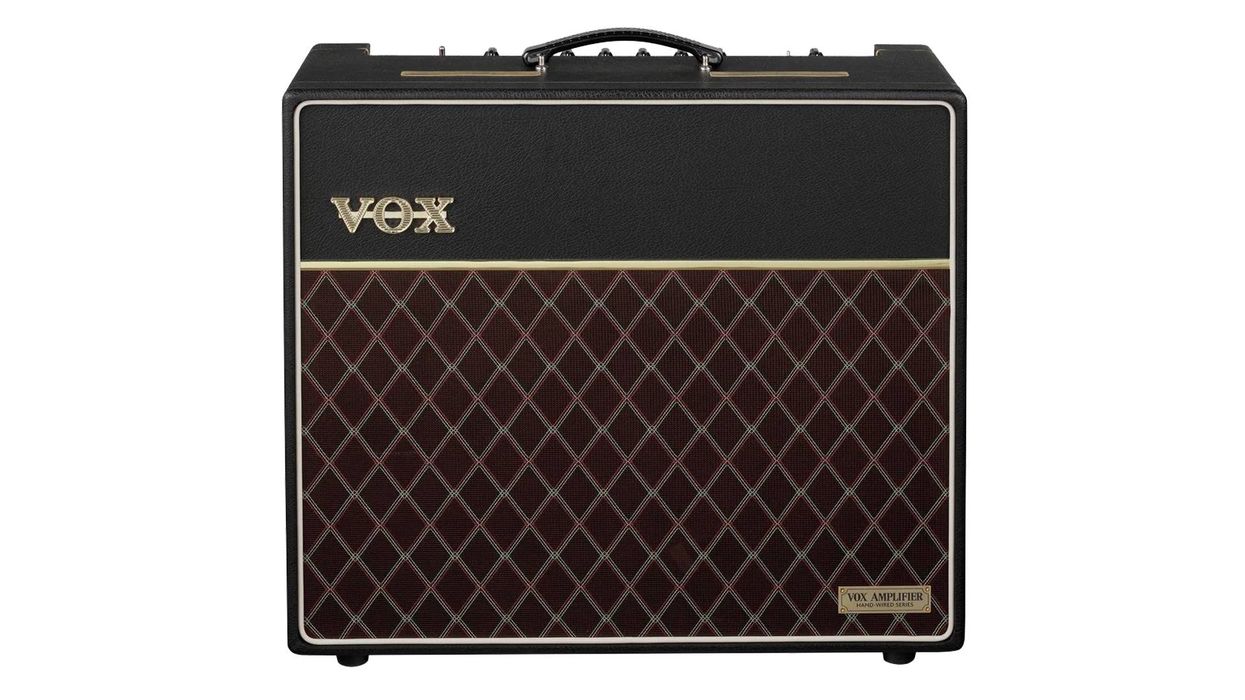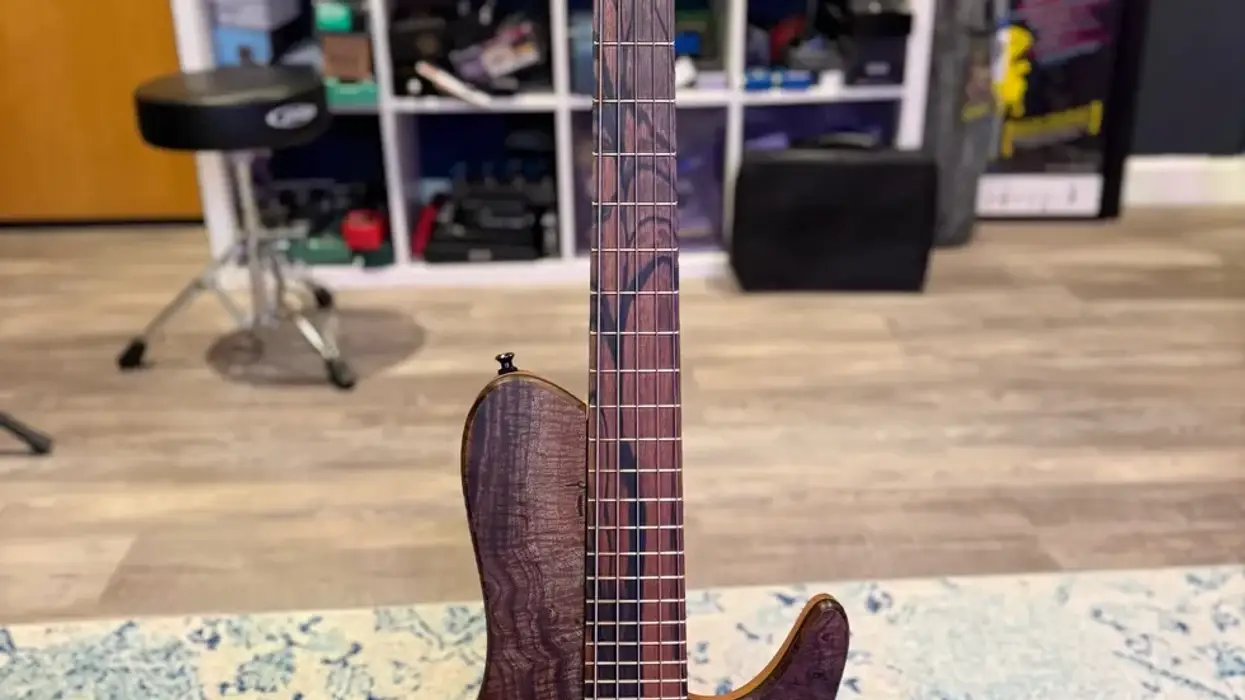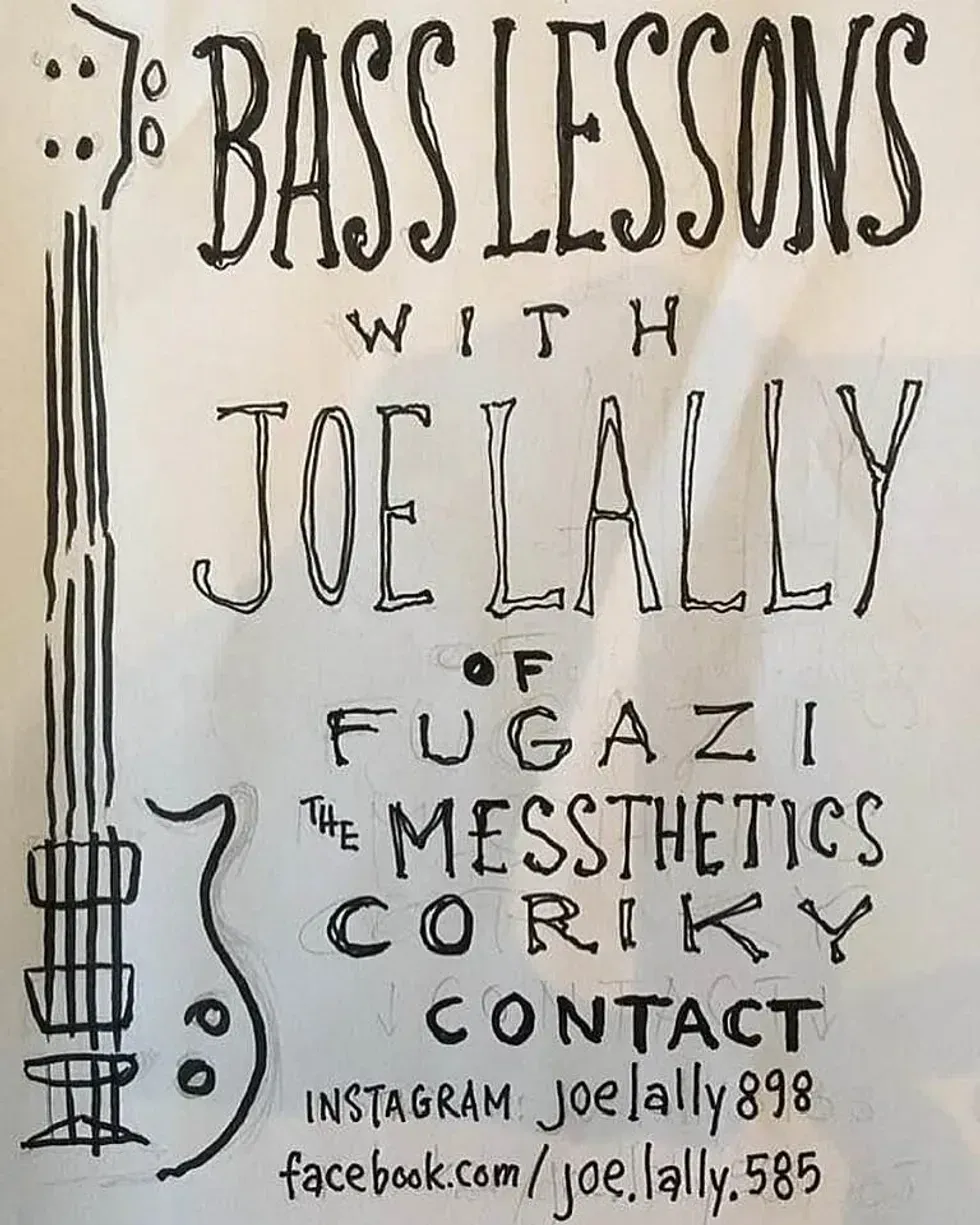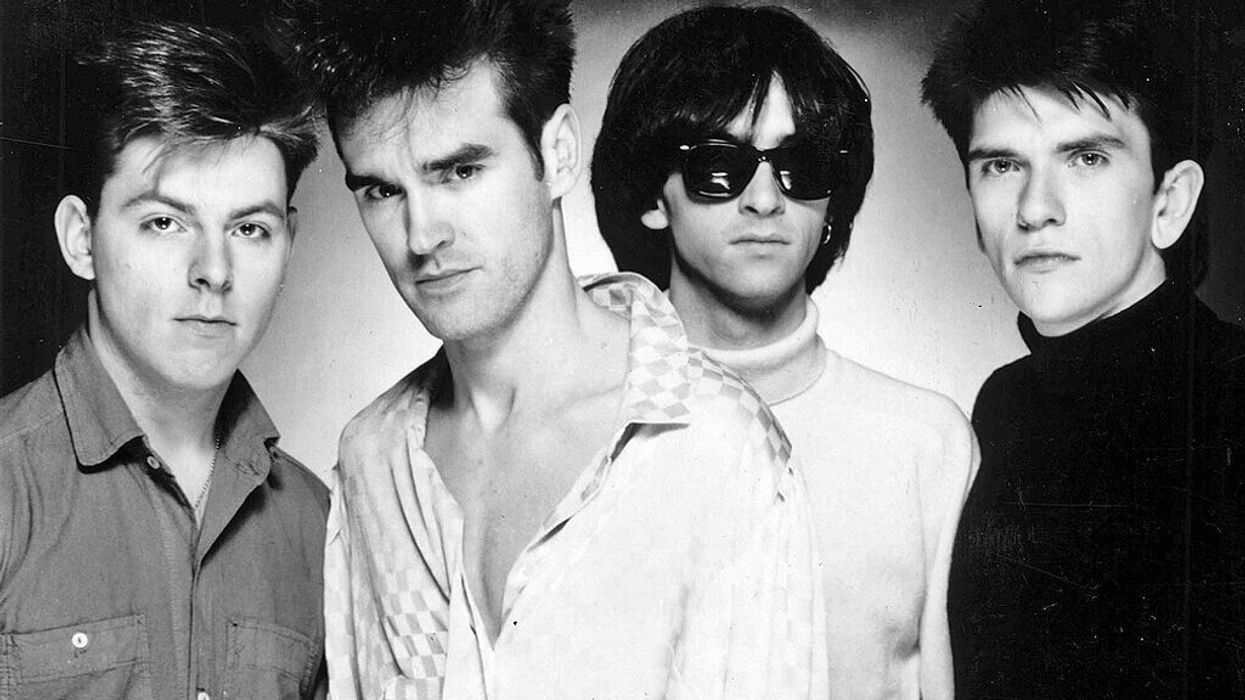The idiosyncratic musician has gone from Zappa to the classroom, even though he says “I can’t write a bass line to save my life.”
I was surprised, intrigued, and thrilled to encounter some rather audacious bass playing at an outdoor school benefit show I played this past fall in Lagunitas, California. I was nowhere near the stage (instead, I was waiting in line for my benefit show compensation—a free meal), but I could still hear the emergence of busy, angular lines and unusual chords rumbling across the hillside venue. When I started setting up for my band’s set and the earlier band was packing up, I spotted the responsible bassist, and it all made sense.
It was Scott Thunes, the low-end raconteur who started playing with Frank Zappa at age 21. He spent the better part of the ’80s in Zappa’s band, appearing on numerous live albums and a couple of studio recordings, including the bandleader’s 1982 Top 40 single, “Valley Girl.” His career resume includes stints with Steve Vai, Mike Keneally, the Waterboys, the Mother Hips, and Fear, among others.
In recent years, Thunes (pronounced “too-ness”) has toured with the re-formed Zappa Band, Banned from Utopia, which plays a few times a year at the venerable Los Angeles venue the Baked Potato. Catch one of these shows and you’ll see how Scott’s tremendous facility on his instrument and unusual creative approach add a level of complexity to Zappa’s famously challenging music.
“I can’t write a bass line to save my life,” he claims, striking a tone that seems less like a reluctant confession and more like a bold stylistic declaration. “For 99 percent of bass players, the job is to be the intermediary between the drums and the guitar—to be both harmonic and rhythmic. And a lot of bass parts have that really great element. That’s wonderful, but people who know my playing don’t hire me to do that,” he says.
“I’m not big on laying down a bass part and then just sitting on it. I’m not a groove monster, and I never have been. That’s not why Frank hired me. I need to have space to express myself, and unfortunately that makes me fall very drastically into the overplaying bass player type. I have absolutely no problem with that because Frank didn’t have a problem with that.”
Thunes describes his “mindful overplaying” as something he’s not always been happy with. “I’ve been fired from more bands than I’ve been hired by,” he deadpans, before allowing a slight, sly grin.
Then there’s the Ramones. Thunes is a teaching artist for the rock band program at Marin School of the Arts at Novato High School in Novato, California. On the day we spoke, his six teenage bands performed medleys of the pioneering American punk band’s material as part of a final exam.
“I was really not expecting them to do well with the Ramones,” he reveals, “especially the more advanced kids, who think the Ramones are too simple. But they pulled it off. I’m very happy about it. The energy was really high, the percentage of downstrokes was up at around 85 or 90 percent, and they got tired—they’re supposed to. It was a great experience for me today, to have my kids not piss all over one of the greatest bands of all time.”
As for his own approach to playing music. Scott says he doesn’t really think of himself as a bass player. “I think of myself as Scott Thunes, who has chosen the bass as the area in which I express myself,” he says. “Now, I may not be able to write a melody or a bass line, but I can find my way through the intricacies of a harmonic system and ply my trade. That’s really all I wanna do. I just want to find a space to put my stuff in.”
For a more in-depth perspective on Scott Thunes, check out two books by Thomas Wictor: In Cold Sweat: Interviews with Really Scary Musicians and Ghosts and Ballyhoo: Memoirs of a Failed L.A. Music Journalist.
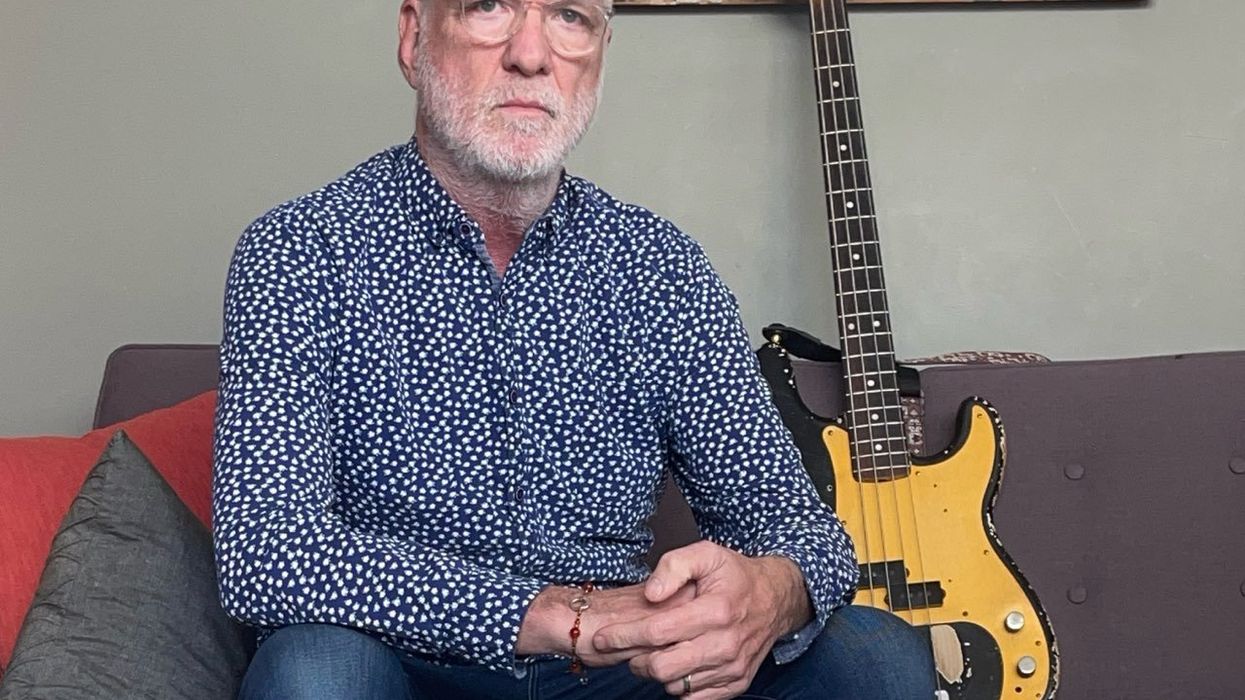
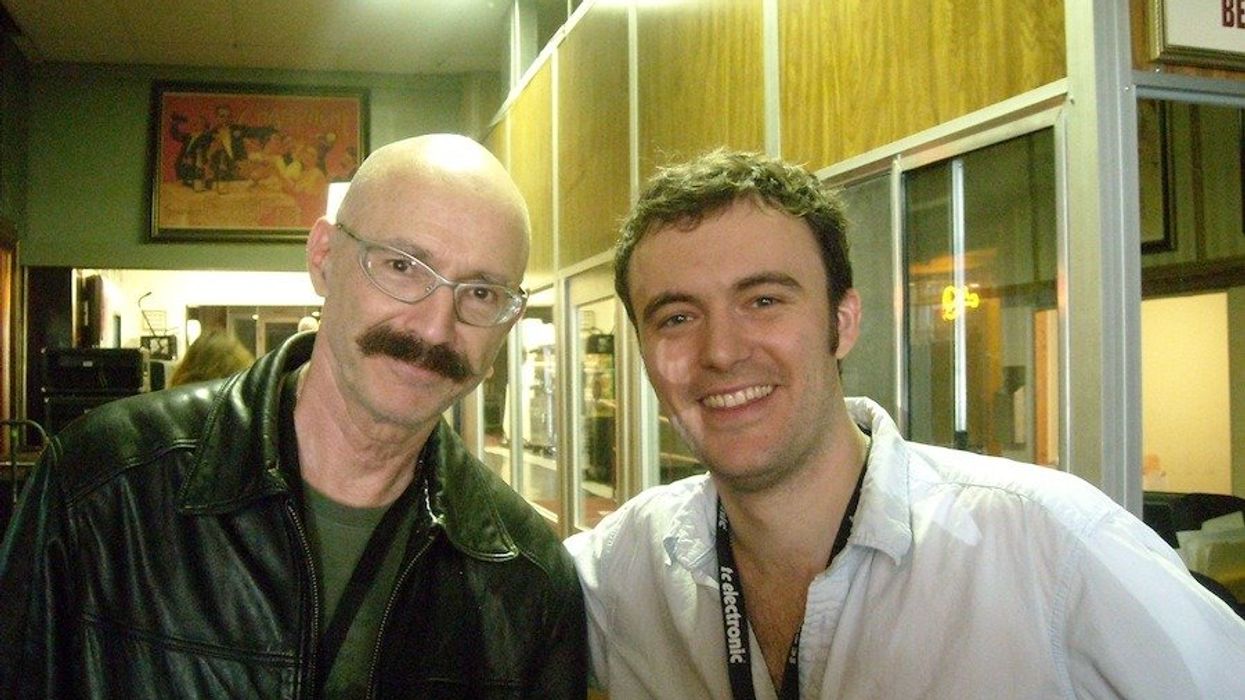
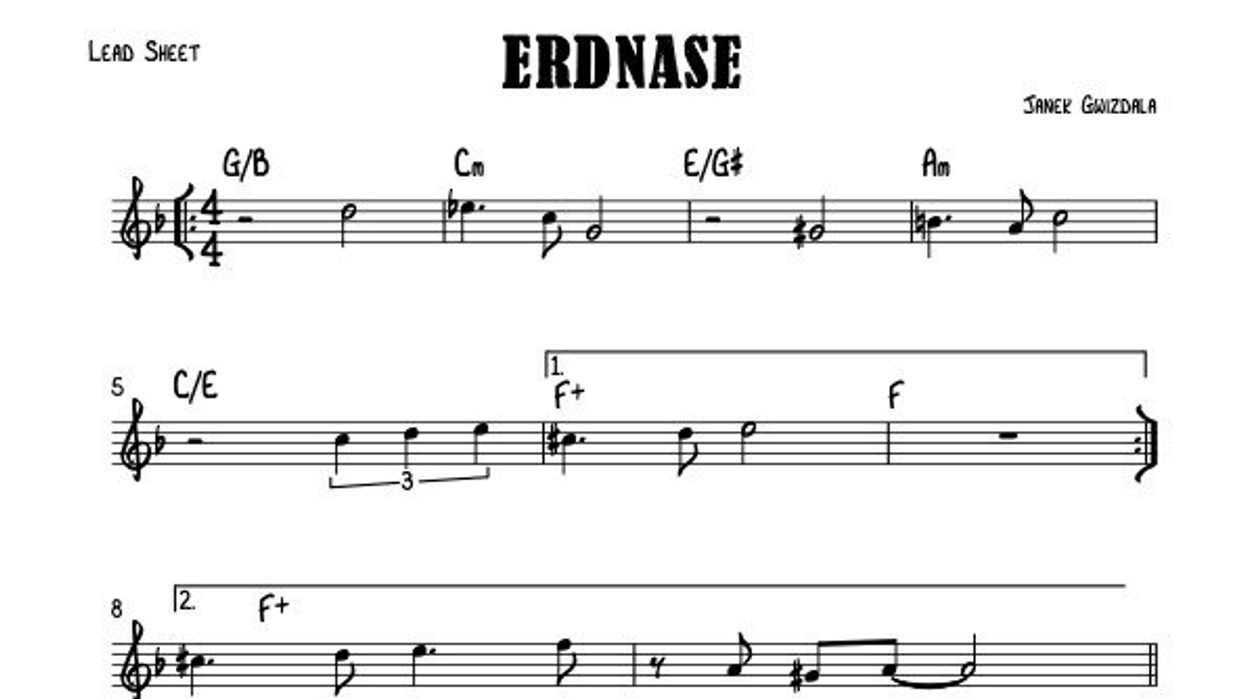
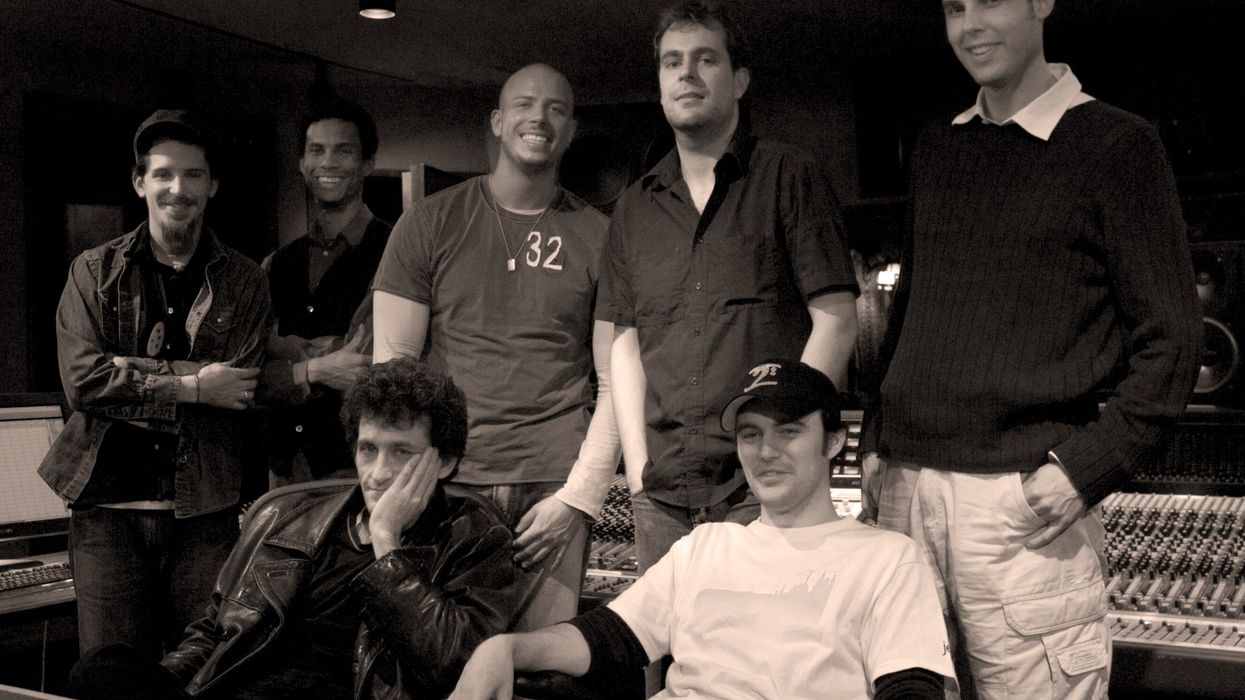

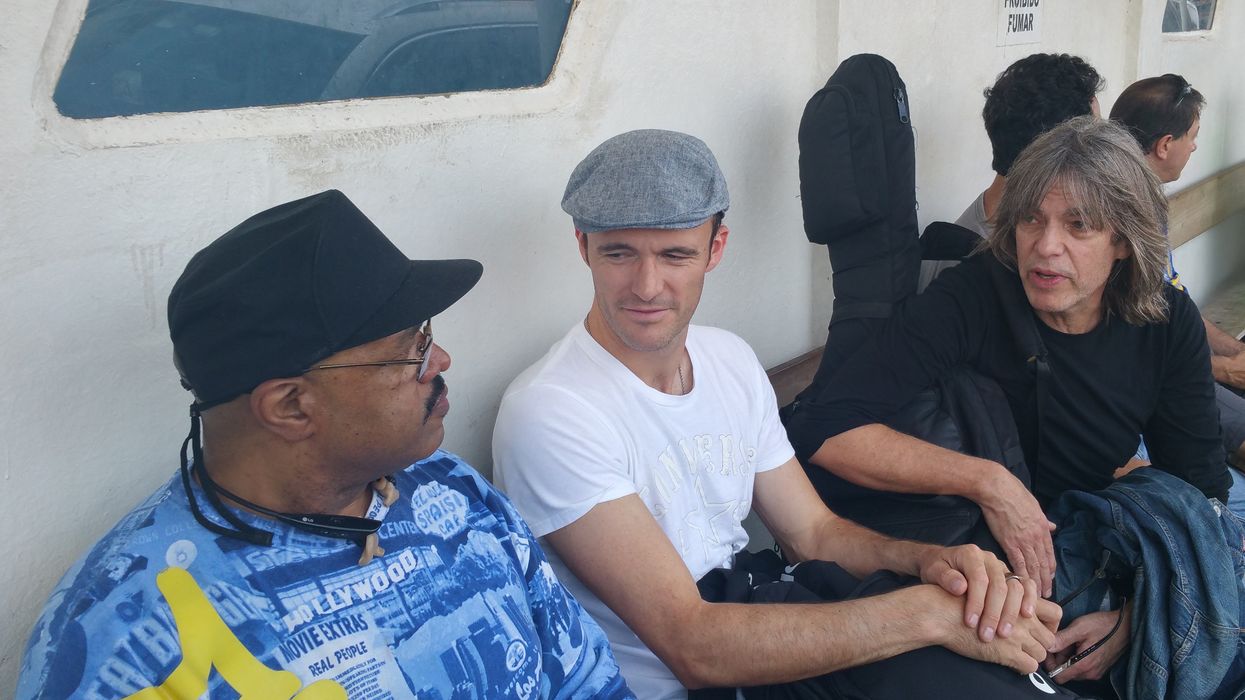
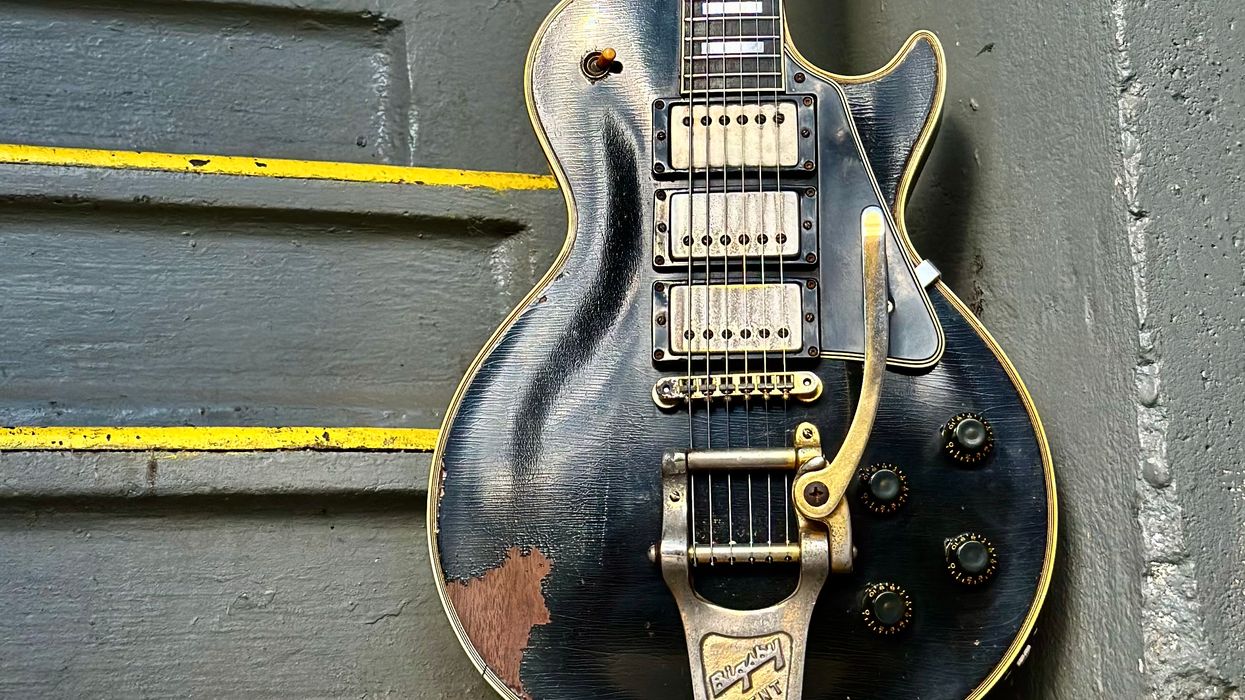
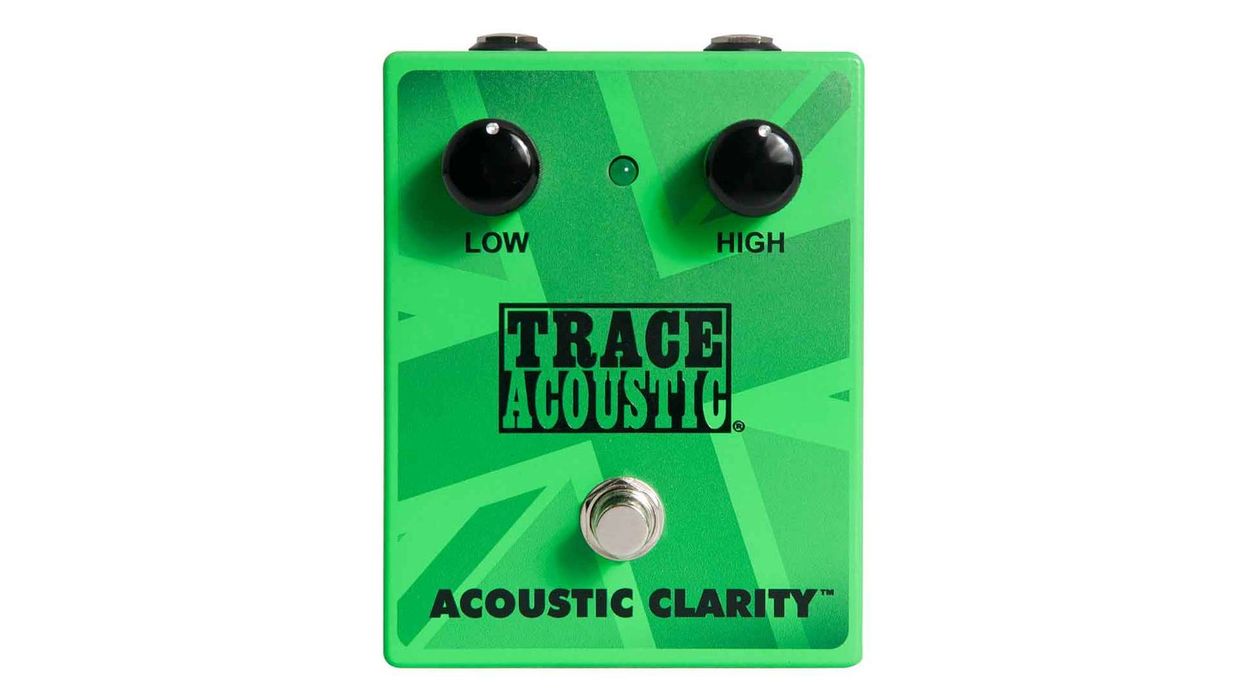
![Rig Rundown: AFI [2025]](https://www.premierguitar.com/media-library/youtube.jpg?id=62064741&width=1245&height=700&quality=70&coordinates=0%2C0%2C0%2C0)
